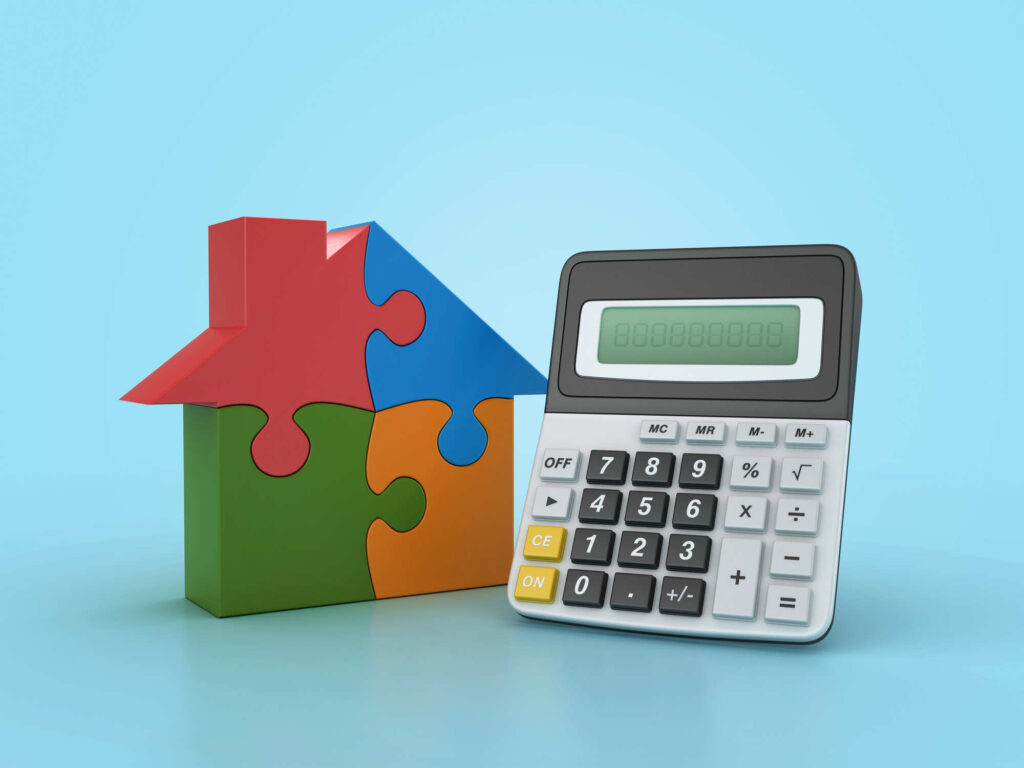Last Updated on January 7, 2025
If you own property in Spain, you’re probably familiar with the IBI (Impuesto sobre Bienes Inmuebles) local property tax. This is the standard tax paid to local authorities, but many non-resident property owners mistakenly believe that once this is settled, their tax obligations are complete. However, if you’re a non-resident and own an urban property in Spain, there’s another crucial tax you must file: the imputed tax, also known as deemed annual tax. This tax applies to non-residents who own property in Spain, even if the property is unoccupied. While it might seem like a hassle, staying on top of your imputed income tax is crucial to avoid penalties and interest charges. The Deadline for 2023 is looming! In this guide, we will cover all the essential information you need to know about both taxes.
What is the IBI tax in Spain?
The Spanish IBI tax (Impuesto sobre Bienes Inmuebles) is a local property tax charged by your town hall, similar to council tax in the UK, but usually less expensive. In some regions of Spain, it’s also called the SUMA tax. Like council tax in the UK, the IBI tax helps fund local services such as road maintenance, street lighting, and schools. Paying the IBI tax is essential because it’s used to calculate other property-related taxes in Spain. The tax is due every year by the person who owns the property as of January 1st. So, if you buy a home on January 2nd, the previous owner will pay that year’s IBI tax, and you’ll begin paying it the following year. All property owners, whether residents or non-residents, are required to pay this tax. In some areas, the IBI tax may also cover garbage collection, but this isn’t always the case, so it’s something to check when purchasing property. For more details on waste disposal, check out our guide to utilities in Spain.
How is IBI Tax Calculated in Spain?
IBI tax in Spain is based on your property’s cadastral value, which is the value assigned by local tax authorities. You can find this value on your IBI tax documents, and it’s usually much lower than the property’s market value. The IBI tax typically ranges from 0.4% to 1.1% of the cadastral value.
When is IBI Tax Due?
The due date for IBI tax is set by your local town hall, so it can vary depending on where your property is located. When buying a new property, make sure to ask the town hall about the specific due date.
What Happens If I Don’t Pay My IBI Tax?
Not paying your IBI tax can lead to serious issues. In extreme cases, your property could even be seized. Town halls are becoming stricter about collecting unpaid taxes, so it’s more important than ever to pay on time. If you don’t pay your IBI tax, you won’t be able to file your non-resident tax since you need proof of IBI payment to do so. Also, properties with unpaid IBI tax can’t be bought or sold until the debt is cleared. Keep in mind that you won’t receive a reminder to pay your IBI tax, so it’s up to you to know when and how much to pay. It’s a good idea to hire a lawyer or tax expert to help ensure everything is handled correctly and on time.
What is the Non-Resident Imputed Income Tax in Spain?
If you’re a non-resident who owns property in Spain but doesn’t rent it out, you’ll need to pay the Non-Resident Imputed Income Tax (IRNR). It is also known as deemed income tax. This tax applies even if the property is just for personal use or stays vacant all year.
For Multiple Owners
If you own the property with others, each co-owner must file a separate tax return. The tax is divided based on each person’s share of the property, so you’ll need to report your specific ownership percentage.
How is it Calculated?
To calculate the imputed income tax, use this formula: Cadastral Value x Imputed Percentage x Tax Rate You’ll need the cadastral value of your property, which you can find on your local tax receipt (IBI or SUMA), by contacting the local town hall, or visiting www.sedecatastro.gob.es. The imputed percentage ranges between 1.1% and 2%, depending on your property’s location. If there was a revision in the last 10 years our property tax advisors can use 1.1%, but this depends on the region. Will have to check with CIty Hall the information, if it is not listed in the IBI document. The tax rate is 19% for residents of the EU, Iceland, Norway, and Liechtenstein, while non-EU residents pay 24%. If multiple people own the property, each must file their own Modelo 210, with the tax split according to ownership.
When is the Deadline?
Have you paid your IBI local tax and assumed all your tax obligations are complete? Think again! If you own an urban property in Spain, there’s an additional tax you must declare each year: Modelo 210, also known as the imputed or non-resident tax. In addition to your IBI tax, this annual declaration is required to stay compliant with Spanish tax laws. The deadline for the 2023 tax year is fast approaching—December 23, 2024. Don’t miss it!
Who can help me?
We understand that Spain’s imputed income tax can feel overwhelming, especially for non-residents. But don’t worry—we’re here to help! At Property Tax International (PTI Returns), we handle the entire process of preparing your tax forms for Spain’s imputed income tax. With years of experience in Spanish property tax services, we ensure our clients stay fully compliant with all necessary tax laws. Property Tax International will keep you informed every step of the way and handle all communication with the Spanish tax office on your behalf. If you have rental income, we can also help you file your rental income tax return. Got questions? Don’t hesitate to contact us for a no-obligation consultation.




